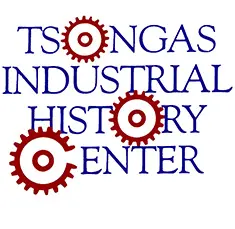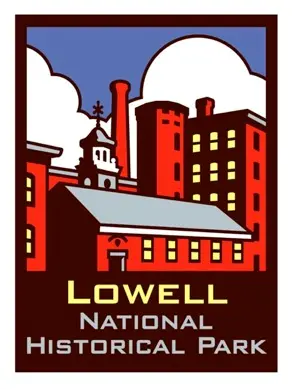During our week-long workshop, "Inventing America: Lowell and the Industrial Revolution," teachers participated in a number of different activities. The videos on this page use a montage approach to provide a sweeping view of these activities, including Tsongas Industrial History Center hands-on workshops. Also featured here are the full talks by many of our presenters. We invite you to view them all for content that will be helpful in your classroom. For more videos, please visit our YouTube Channel.
- "Lowell and the Industrial Revolution" Teacher Workshop Montage
- Water Power Workshop
- Visiting Old Sturbridge Village
- Workers on the Line Workshop
- Meeting Henry David Thoreau
- Meeting a Lowell Mill Girl
- Nineteenth-Century Economics
- "Labor Responses to the New Industrial Order"
- "Cotton, Cloth and Conflict"
- "Emergence of the American System of Manufacturing"
- "Art and Industrialization"
- "Industrial Capitalism and Literary Romanticism"
- "Using Primary Sources in the Classroom"
Many other videos also suitable for classroom teaching are available on the Lowell National Historical Park YouTube Channel.
Workshop-Montage"Lowell and the Industrial Revolution" Teacher Workshop Montage
This montage offers a whirlwind tour through a week's worth of activities for teachers studying about Lowell and the Industrial Revolution at the Tsongas Industrial History Center.
Water-PowerWater Power Workshop
Teachers studying about Lowell, MA, and the Industrial Revolution channeled water and tested water wheels as part of a day-long experience that included travel through Lowell's canals on National Park Service boats.
Sturbridge-VillageVisiting Old Sturbridge Village
Teachers studying about Lowell and the Industrial Revolution enjoyed a day-long visit to Old Sturbridge Village in Sturbridge, MA, where they explored the transition from farm to factory: from sheep herding to sawmills, from a potter's shed to a water-powered grist mill.
Workers-on-the-LineWorkers on the Line Workshop
Teachers studying about Lowell, MA, and the Industrial Revolution experienced assembly line conditions first-hand when they "became" workers at the "Mill City Print Works."
Henry-David-ThoreauMeeting Henry David Thoreau
Henry David Thoreau came alive for teachers studying about Lowell, MA, and the Industrial Revolution as part of a week-long summer workshop for teachers sponsored by the National Endowment for the Humanities. Here renowned role player Richard Smith introduces himself as Thoreau.
(for more Henry David Thoreau videos, visit our YouTube Channel.
Lowell-Mill-GirlMeeting a Lowell Mill Girl
Emily Anstey portrays a young female mill operative for teachers studying about Lowell, MA, and the Industrial Revolution as part of a week-long summer workshop sponsored by the National Endowment for the Humanities.
Nineteenth-Century-EconomicsNineteenth-Century Economics
Teachers studying about Lowell and the Industrial Revolution enjoyed a day-long visit to Old Sturbridge Village in Sturbridge, MA, to explore the transition from farm to factory. In this segment, OSV Curator Tom Kelleher fields questions about currency and banking as he demystifies nineteenth-century economics.
Labor-ResponsesRobert Forrant, Ph.D., UMass Lowell, “Labor Responses to the New Industrial Order”
Forrant addresses teachers studying about Lowell, MA, and the Industrial Revolution as part of a week-long summer workshop sponsored by the National Endowment for the Humanities. Using a rich array of primary sources, Forrant brings to life the struggles and protests of workers in the new industrial order exemplified by Lowell's textile mills.
Cotton-Cloth-ConflictGray Fitzsimons, “Cotton, Cloth and Conflict”
Former Lowell National Historical Park Historian Gray Fitzsimons addresses teachers studying about Lowell, MA, and the Industrial Revolution as part of a week-long summer workshop sponsored by the National Endowment for the Humanities. This talk illuminates issues resulting from the relationships between Northern cotton textile factories and Southern cotton plantations prior to the Civil War.
American-System-ManufacturingMerritt Roe Smith, Ph.D., MIT, "Emergence of the American System of Manufacturing"
Smith addresses teachers studying about Lowell, MA, and the Industrial Revolution as part of a week-long summer workshop sponsored by the National Endowment for the Humanities. This engaging talk explores the rise of American industrial capitalism in international context and tells the story of the emergence of the American system of manufacturing.
Art-IndustrializationChad Montrie, Ph.D., UMass Lowell, "Art and Industrialization"
Montrie leads teachers in examining the American Industrial Revolution through art as part of a week-long summer workshop sponsored by the National Endowment for the Humanities. Montrie shows how landscape paintings of Thomas Cole and Charles Sheeler (included in NEH's "Picturing America" series) function as story-telling devices using composition and symbolism to convey America's industrial history.
Industrial-CapitalismChad Montrie, Ph.D., UMass Lowell, "Industrial Capitalism and Literary Romanticism"
Montrie leads teachers in examining the American Industrial Revolution through a literary lens as part of a week-long summer workshop sponsored by the National Endowment for the Humanities. Montrie uses maps and engravings in discussing how the writings of Lowell's "mill girls" and of nineteenth-century Concord, MA, authors like Emerson and Thoreau provide us with an understanding of changing views of nature and work during the nineteenth century.
Primary-SourcesBridget Marshall, Ph.D., UMass Lowell, "Using Primary Sources in the Classroom"
Marshall presents teachers with intriguing (and sometimes surprising) historical documents as she offers tips and techniques for teaching with primary sources.
For more videos, please visit our YouTube Channel.


